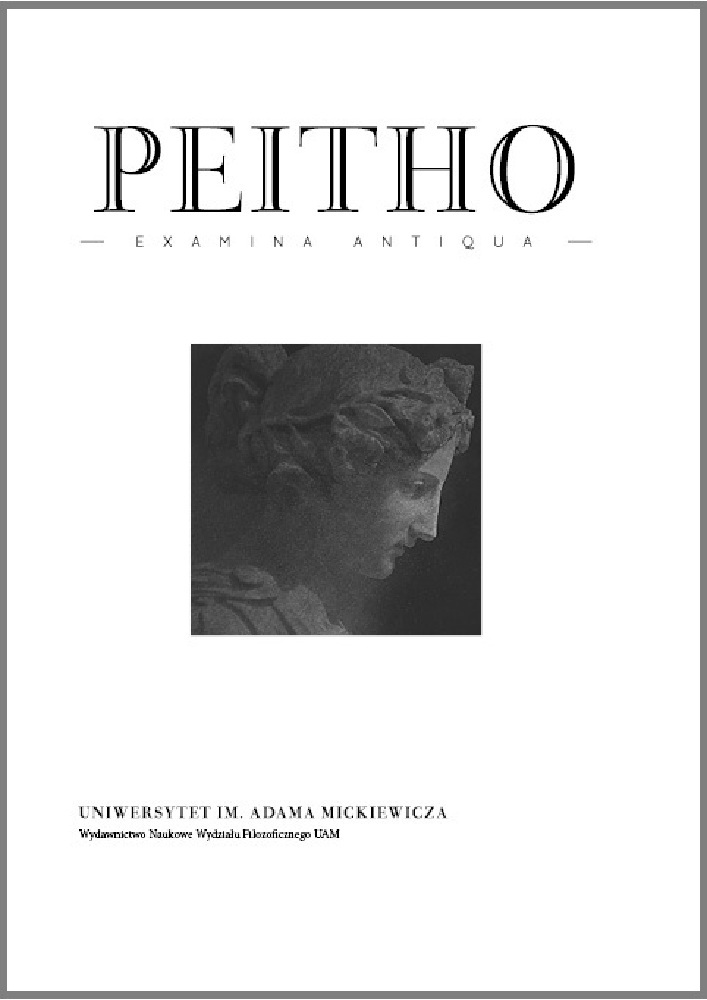Abstract
The category of the Ethico-Aesthetics, introduced by Søren Kierkegaard, was applied to the study of Byzantine Philosophy by the Greek philosopher and theologian Nikolaos Matsoukas (1934–2006). Matsoukas vehemently rejected the identification of Byzantine philosophy with a strict Christian moralism. Rather, he viewed it as an ethos which did not lead the ascetics to display Manichean contempt for the body. It was thus a kind of ‘mild asceticism’. This ethical acceptance of the body turns against Neoplatonic speculation and cultivates the habitus that leads to artistic creativity. Byzantine philosophy is thus situated at the midpoint between nominalism and realism, but standing against the realism of the archetypal ideas. The paper concludes with some considerations on the pragmatics of Byzantine philosophy in a Christian world.
References
Arabatzis, G., 2008, “Ο Ι. Ν. Θεοδωρακόπουλος απέναντι στη Βυζαντινή Φιλοσοφία. Οι πηγές της κριτικής του” [I. N. Théodoracopoulos sur la philosophie byzantine. Les sources de sa critique], Ekklesiastikos Pharos 79, pp. 49–62.
Arabatzis, G., 2011, “Basile N. Tatakis et la légitimité de la philosophie byzantine”, Nea Rhome 8, pp. 305–314.
Arabatzis, G., 2014, “Ηθική, φυσιοκρατία και θεία προσταγή. Με αφορμή ένα απόσπασμα του Μεγάλου Βασι¬λείου”, in : V. E. Pantazis, M. Stork (Hgg.), Όμμασιν άλλοις. Festschrift für Professor Ioannis E. Theodoropou¬los zum 65. Geburtstag Themenbereiche, Essen, pp. 263–282.
Brisson, L. (ed.), 1989, Platon, Phèdre, suivi de J. Derrida, La pharmacie de Platon, Paris.
Colette, J., 1994, “Le médium musical”, in : J. Colette, Kierkegaard et la non-philosophie, Paris, pp. 171–186.
Guillou, A., 1986, “La vie quotidienne à la haute époque byzantine, Eusébeia : piété. Une réflexion lexi¬cographique ”, in : The 17th International Byzantine Congress, Major Papers, New Rochelle–New York, pp. 189–209.
Guillou, A., 1991, “L’orthodoxie byzantine”, Archives des sciences sociales de la religion 75, pp.1–10.
Hadot, P., 2002, Exercices spirituels et philosophie antique, Paris.
Kant, E., 1986, Critique de la raison pure, A. Tremesaygues, B. Pacaud (trad.), Paris.
Kierkegaard, S., 1943, Ou bien… ou bien…, F. Prior, O. Prior, M. H. Guignot (trad.), le chapitre « Les étapes érotiques spontanées ou l’érotisme musical » (1843), pp. 39–105.
Marion, J.-L., 1997, Étant donné. Essai d’une phénoménologie de la donation, Paris.
Matsoukas, N., 1998, Ιστορία της Βυζαντινής Φιλοσοφίας [= Histoire de la philosophie byzantine], Thessalonique.
Mondzain, M.-J., 1996, Image, icône, économie : les sources byzantines de l’imaginaire contemporain, Paris.
Mortley, R., 1975, “Negative Theology and Abstraction in Plotinus”, American Journal of Philology 96, pp. 363–377.
Obolensky, D., 1974, The Byzantine Commonwealth : Eastern Europe, 500–1453, London.
Tatakis, B. N., 1949/1951, La philosophie byzantine, Paris.
Wittgenstein, L., 2005, Recherches Philosophiques, F. Dastur, M. Élie, J.-L. Gautero, D. Janicaud, É. Rigal (ed.), Paris.
License
Peitho provides immediate open access to its content on the principle that making research freely available to the public supports a greater global exchange of knowledge.
